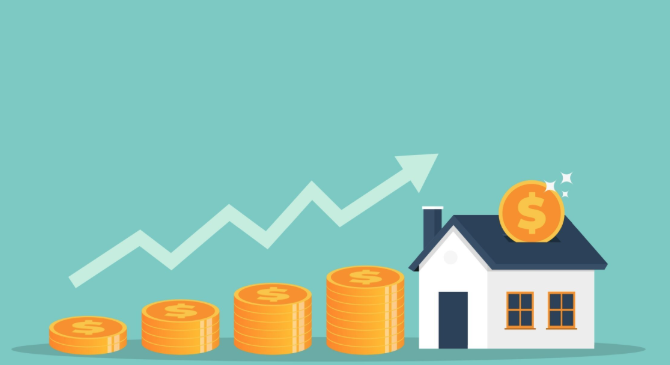Owning your first home is a dream for many Canadians, but with rising housing prices, saving enough for a down payment can be a significant challenge. To support first-time homebuyers, the Canadian government introduced a powerful financial tool called the First Home Savings Account (FHSA) in 2023.
FHSA is a special type of savings account designed specifically to help Canadians save for their first home with attractive tax advantages. It combines the benefits of two popular accounts: the Registered Retirement Savings Plan (RRSP) and the Tax-Free Savings Account (TFSA).
How FHSA Works
-
Contribution Limits: You can contribute up to $8,000 per year, with a lifetime contribution limit of $40,000. Unused contribution room can be carried forward to future years.
-
Tax Deductibility: Contributions to FHSA are tax-deductible, similar to RRSPs, which means you reduce your taxable income in the year you contribute.
-
Tax-Free Growth: Any investment earnings inside the account, such as dividends, interest, or capital gains, grow tax-free.
-
Tax-Free Withdrawals for Home Purchase: When you withdraw funds from your FHSA to buy your first home, both the contributions and the investment growth are tax-free, similar to a TFSA.
-
Account Duration: You can keep your FHSA open for up to 15 years or until the end of the year you turn 71, whichever comes first. If you don’t buy a home within that time, you can transfer the funds to your RRSP or RRIF without losing your contribution room.
Who is Eligible to Open an FHSA?
-
Canadian citizens or permanent residents.
-
Individuals aged 18 or older (some provinces may require 19+).
-
First-time homebuyers who have not owned a home in the previous four years.
FHSA vs. RRSP vs. TFSA
| Feature | FHSA | RRSP | TFSA |
|---|---|---|---|
| Tax deduction on contributions | Yes | Yes | No |
| Tax-free growth | Yes | Yes | Yes |
| Tax-free withdrawal for home | Yes (for first home purchase) | Yes (with Home Buyers’ Plan; must repay) | Yes (any purpose) |
| Annual contribution limit | $8,000 | 18% of earned income (max ~$30,000) | $7,000 (2024) |
| Lifetime contribution limit | $40,000 | No limit | No limit |
Benefits of Using FHSA
-
Tax Savings: Reduce your taxable income while saving.
-
Grow Your Savings Tax-Free: Your investments grow without being taxed.
-
Withdraw Tax-Free for Your First Home: Access your savings without paying taxes when buying your first house.
-
Flexible Options: Transfer unused funds to your RRSP if plans change.
-
Encourages Smart Financial Planning: Helps you build a disciplined savings plan toward homeownership.
Tips for Maximizing FHSA
-
Start contributing early to maximize growth and tax advantages.
-
Combine FHSA with the Home Buyers’ Plan (HBP) to increase the total funds available for your home purchase.
-
Choose investments suited to your risk tolerance and time horizon.
-
Keep track of your contribution limits to avoid penalties.
The FHSA is a valuable savings vehicle designed to help Canadians achieve homeownership by providing significant tax benefits and flexibility. If you’re planning to buy your first home, opening and contributing to an FHSA can be a smart financial move to reach your goal faster.
🧠 FHSA FAQ – Frequently Asked Questions About the First Home Savings Account
❓1. I’m not sure if I’ll buy a home – should I still open an FHSA?
Yes! You should open an FHSA as early as possible to:
-
Start accumulating contribution room (you can carry unused room forward).
-
Even if you don’t end up buying a home, you can transfer the funds to your RRSP without affecting your RRSP contribution limit.
❓2. I live with someone who owns a home – am I still eligible?
You’re only eligible to open an FHSA if, in the past 4 calendar years, you:
-
Did not own a qualifying home as your principal residence, and
-
Did not live in a home owned by your spouse or common-law partner.
❓3. Can I use both FHSA and the RRSP Home Buyers’ Plan (HBP)?
Yes! You can combine both programs:
-
FHSA: Withdraw up to $40,000 tax-free with no repayment required.
-
RRSP HBP: Withdraw up to $35,000, but you must repay it over 15 years.
👉 Together, you can access $75,000 or more toward your first home with significant tax advantages.
❓4. How long can I keep my FHSA open?
Your FHSA can stay open for up to 15 years, or until the earliest of:
-
The end of the year when you turn 71, or
-
The end of the year after you make your first qualifying withdrawal to buy a home.
After that, the account must be closed. You can transfer any remaining funds to an RRSP or RRIF tax-free.
❓5. Can I have more than one FHSA?
Yes, you can open multiple FHSAs at different financial institutions, but:
-
The annual and lifetime contribution limits ($8,000/year, $40,000 lifetime) apply across all accounts combined, not per account.
❓6. What happens if I withdraw FHSA funds for non-home purposes?
-
If you withdraw funds not used for a qualifying home purchase, the amount will be taxable as regular income.
-
Once you’ve bought a home, you can no longer make tax-free withdrawals from the FHSA.
💡 Tip: If you’re unsure about buying a home, consider transferring the funds to your RRSP to preserve the tax benefits.
❓7. What can I invest in inside an FHSA?
You can hold most of the same investments allowed in an RRSP or TFSA, such as:
-
Stocks
-
ETFs
-
Bonds
-
Mutual funds
-
GICs (Guaranteed Investment Certificates)
-
Cash
